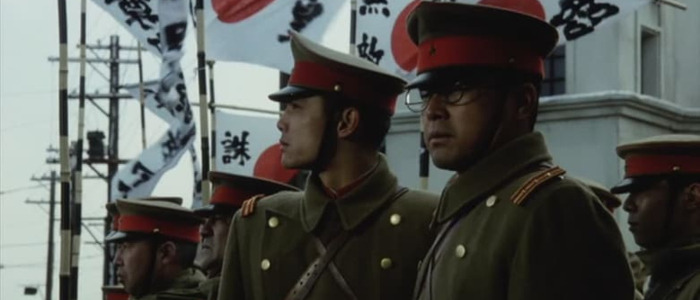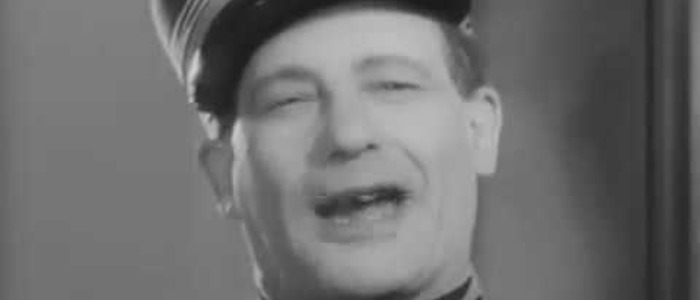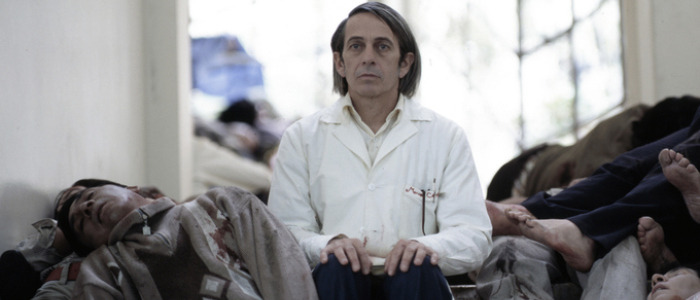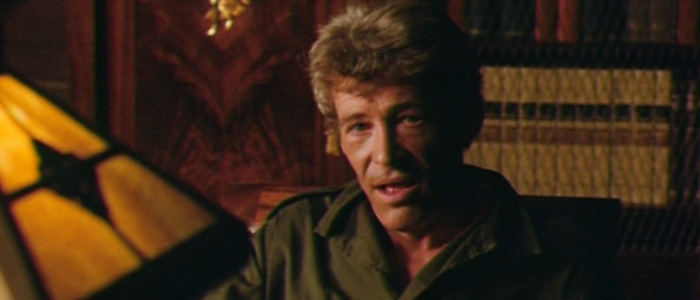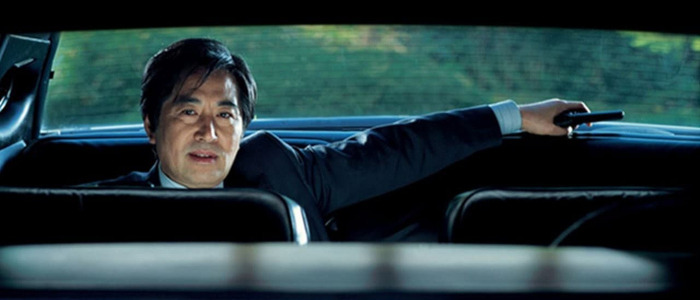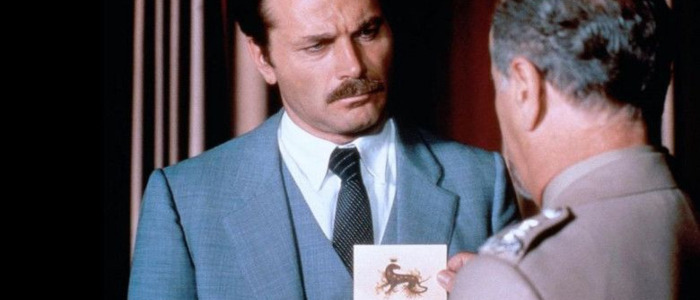The Best Movies You've Never Seen About Coups D'état
(Welcome to The Best Movies You've Never Seen, a series that takes a look at slightly more obscure, under-the-radar, or simply under-appreciated movies. This week's column offers up a primer on the varied complications that arise when you attempt to overthrow the government.)
The United States just celebrated this year's Fourth of July holiday, and for many it's a day off from work and for others it's an excuse to placate their inner pyromaniac, but the historical backdrop involves one of the world's most important coup d'état... of sorts. Obviously those of us in the US view it as a fight for independence, and sure, the Revolutionary War wasn't technically a coup d'état as the Americans didn't seek to overthrow and replace the British government, but they did act with the express purpose of unseating those in power here in what would become the US.
Is it semantics? Maybe. But it's enough of a reason to jump-start this week's look at underseen movies about coups d'état both successful and attempted. Some of the best known include John Frankenheimer's Seven Days in May (1964), the Tom Cruise-starring Valkyrie (2008), and Costa-Gavras' heartbreaking and true Missing (1982). One of my personal favorites is 2015's No Escape which takes an entertainingly Cannon Films-like approach to its near xenophobia and over-the-top violence. You know the drill by now, though, meaning that while those are the popular ones we're here to talk about ones far less appreciated.
Keep reading for a look at the best movies you've never seen about coups d'état!
Four Days of Snow and Blood (1989, Japan)
February, 1936. Two dozen Japanese officers decide that the direction their country's taking is designed to benefit those in charge while leaving the citizenry to wallow in poverty and starvation. Their oath is to Japan and its people, so they launch a bloody coup that leaves several politicians and higher-ups dead on the floors of their mansions. So far so bloody, but their initial show of force doesn't lead so easily toward convincing others of their intentions.
Hideo Gosha's film explores a historical event that's something of an instigator for what/if scenarios. The attempted military coup didn't end well for the young, idealistic men at its forefront, but one wonders what might have been had they succeeded in installing new military leaders in the years leading up to World War II. Would Japan still have entered the fray? And if not, what kind of world power would they be now?
Even without those grand questions, though, the film does a good job grabbing viewer attention with its opening onslaught. It's a beautifully shot slaughter, and it's followed by exposition and dialogue designed to show these guys as truly faithful to their country and emperor. Does their devotion blind them to certain truths? Perhaps, but as with most things the world is far from black and white. It's a doomed attempt at improving things for the Japanese people, and it's an engaging drama to watch unfold.
Four Days of Snow and Blood is not currently available.
Lady in Danger (1934, UK)
The country of Ardenberg is aflame as a military coup is working hard to dismantle the existing government. The general in charge has a secret plan, though, in that he's planning on restoring power to the monarchy once the fighting is over. It's a bit dangerous until then so he convinces a visiting British businessman to help smuggle the country's rightful queen to England until it's safe to return. He agrees, but hijinx soon ensue as he's forced to hide her identity from everyone including his own fiance.
Violence in the streets seems like an odd backdrop for a comedy, but this farcical and brief – it runs under seventy minutes – film takes an approach similar to that of the screwball comedies that would become most popular a decade later. It's a lesser example of that sub-genre perhaps as the laughs don't come nearly as fast or fully as viewers might like, but there's fun to be had with the mild innuendo and slight humor.
Director Tom Walls found success in the 30s and 40s adapting stage plays he had been associated with in the 20s, but this feature is an original one. He stars too, as he often did, and he shows a talent for the fast patter and wordplay. As mentioned above, its execution here never rises to the level of the best screwball classics, but fans of comedy built on innuendo, misunderstanding, and shenanigans will find some harmlessly forgettable fun here.
Lady in Danger is not currently available.
Post Mortem (2010, Chile)
Mario is a mortician's assistant in Santiago, Chile, and the drab, death-related toll of the job has had a visible effect on both his appearance and demeanor. He finds a jolt of energy, though, when his neighbor, a woman with whom he shared a brief sexual fling, disappears as part of a military raid. A coup is underway, and citizens are dying and disappearing at alarming rates, but as the bodies pile up Mario's search for the woman intensifies.
Director Pablo Larrain's Jackie (2016) is his biggest and most acclaimed film to date, but he was already familiar with critical accolades for several of his earlier movies. The Club (2015) and No (2012) are both highly memorable tales that found audiences, and this even earlier feature is equally deserving. The narrative is a bit less direct, but its story is told with mordant and subdued humor early on that builds slowly into a tale recognizing the sad reality that is humanity. (That said, I find the final shot to be increasingly hilarious.)
Larrain has tackled the 1973 Chilean coup before, each time approaching it from different angles, but the focus here on one man's experience offers a different kind of insight. Mario is a lonely man with his own sensibilities, and it's his personal and focused interest in his neighbor Nancy that powers him through the country's growing madness and bloodshed. The coup led to the nearly two decade rule of Augusto Pinochet, and that grand tragedy is unsurprisingly revealed to be built on the backs of thousands of smaller ones.
Post Mortem is available on Blu-ray/DVD and streaming.
Power Play (1978, UK)
Col. Narriman is a celebrated officer in an unnamed European country, and after years of faithfully serving his government he's decided to retire. His plans change, though, when a friend and fellow officer comes to him with a plan to overthrow the president and his cronies in order to better serve the citizenry. Plans turn into action, but as they grow closer to the point of no return it becomes clear that there's a traitor in their own midst.
I won't spoil the outcome of this methodically dramatic thriller, but I'll settle for saying that it fits in nicely with the decade's cynical take on our relationship with government. It builds slowly moving between acts of violence and attempts at persuasion as the core group behind the coup try to build a coalition between military commanders and other players, and the suspense creeps upward throughout. The film is as interested in the varied political relationships as it is the eventual strike, and that makes for good drama.
It's a solid, well-crafted dramatic thriller, but the big draw here is more likely the cast – and no, I don't mean the opening which sees Dick Cavett playing himself as he welcomes one of the surviving players onto his show. David Hemmings takes the lead as Narriman and offers a reliable turn as a morally sound family man who answers the call, but it's two others who bring the charisma. Peter O'Toole is a rakish but well-respected tank commander, and Donald Pleasance brings to life the devious and cruel head of the government's secret police. A few more recognizable faces are spread throughout, but it's these three who hold our attention alongside the slowburn suspense.
Power Play is not currently available.
The President's Last Bang (2005, South Korea)
President Park has a good gig in late 70s South Korea as he fills his days and nights with alcohol, women, and parties. KCIA Director Kim is no fan of his boss or the his methods, and after one more session of being chewed out for being too soft on protesters he decides enough is enough. Along with a small number of other KCIA members, Kim puts in motion a plan to kill the president and his immediate supporters, but can a coup hatched in just a few short hours have any chance at success?
The film is based on the real-life assassination of South Korea's third president. Park's dictatorial rule lasted eighteen years before being shot to death by his KCIA director, and the film – which takes place entirely over just a few hours – captures well the reasons why some among his people would want him dead. (Possibly too well, as the man's family went on to sue the filmmakers over their representation of his supposed behavior.)
While it's based on an act of brutality, the film is very much a blackly comic gem. Kim's motivation, along with that of his co-conspirators, was never quite nailed down as to its origin – some argue this was an attempted coup, while others suggest Kim simply grew irritated with the man and decided on the spot to get rid of him. Either way, the result is a film that finds gallows humor and pathos in an act of questionable patriotism. The event was followed a couple months later by a "proper" military coup masterminded by a former general who would go on to serve for a decade before being sentenced to death for his role in the violent quelling of a student uprising. South Korean politics y'all.
The President's Last Bang is available on DVD and streaming.
The Salamander (1981, US)
Who is killing the great politicians of Italy? Someone is murdering the country's leaders, and Col. Dante Matucci is hot on their trail. The only calling card is a literal one, a piece of paper with a drawing of a salamander, and as Matucci investigates he discovers there's more at play here than a mere serial killer targeting high profile victims. Someone is planning a coup, and they're eliminating threats before moving forward.
This adaptation of Morris West's (The Shoes of the Fisherman, 1963) bestseller makes a mystery/thriller out of its military coup plot, and the film becomes a whodunnit of sorts. The suspects are presented, and Matucci works his way through and around them as more bodies hit the floor. He encounters a series of obstacles and revelations resulting in more murders and a car chase, and it all makes for an enjoyable ride.
It's a little-seen film, but the talent involved is fairly hefty. Franco Nero headlines as the police officer tasked with stopping a killer and a coup, and the supporting lineup includes the varied likes of Christopher Lee, Martin Balsam, Anthony Quinn, Sybil Danning, Eli Wallach, and Cleavon Little. The script is by Rod Serling – the last of his feature scripts to be produced, and coming seventeen years after writing the coup-related film Seven Days in May – and it's the single directorial effort of Peter Zinner, the Academy Award-winning editor of Michael Cimino's The Deer Hunter (1979).
The Salamander is available on Blu-ray/DVD and streaming.

